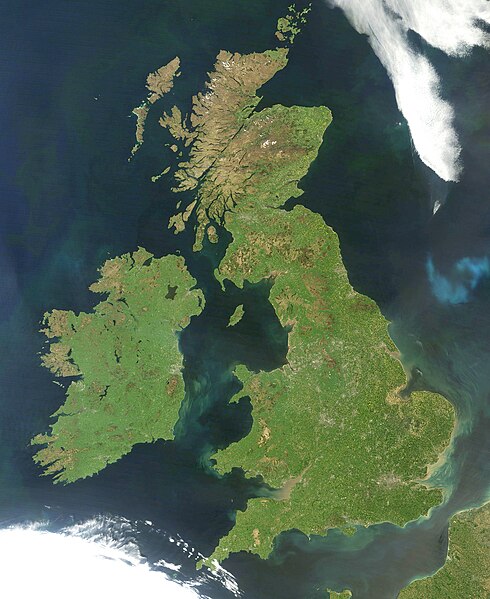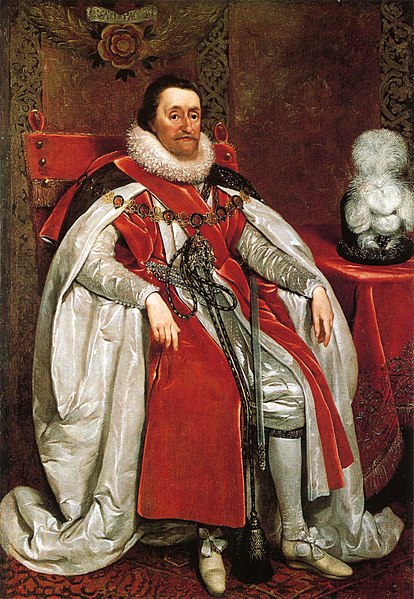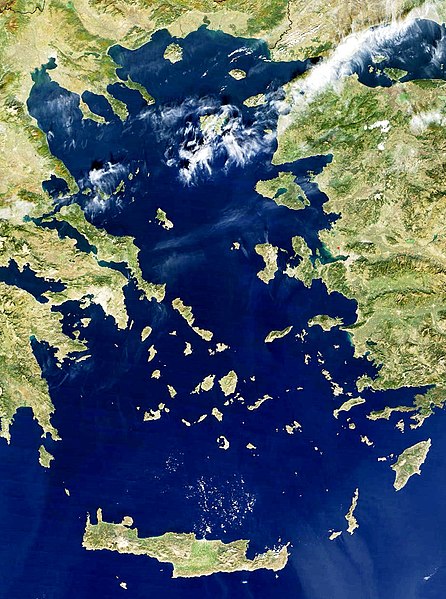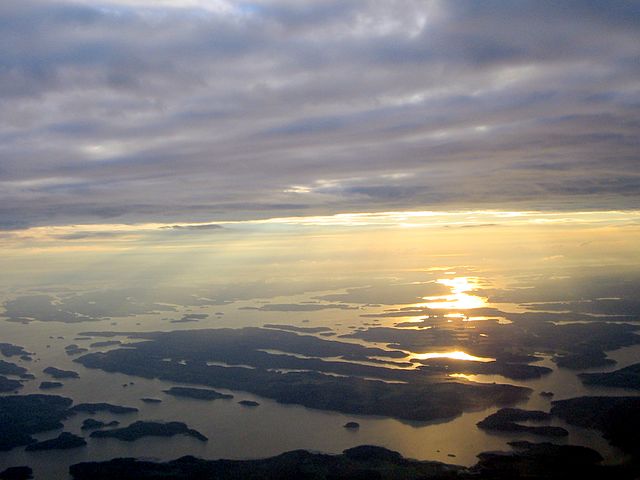The British Isles are a group of islands in the North Atlantic Ocean off the north-western coast of continental Europe, consisting of the islands of Great Britain, Ireland, the Isle of Man, the Inner and Outer Hebrides, the Northern Isles, and over six thousand smaller islands. They have a total area of 315,159 km2 (121,684 sq mi) and a combined population of almost 72 million, and include two sovereign states, the Republic of Ireland, and the United Kingdom of Great Britain and Northern Ireland. The Channel Islands, off the north coast of France, are normally taken to be part of the British Isles, even though geographically they do not form part of the archipelago. Under the UK Interpretation Act 1978, the Channel Islands are clarified as forming part of the British Islands, not to be confused with the British Isles.
A 2012 NASA satellite image of the British Isles, excluding Shetland and the Channel Islands which are out of the frame
Some female red deer in Killarney National Park, Ireland
The Alfred Jewel (9th century)
James VI of Scotland (James I of England)
An archipelago, sometimes called an island group or island chain, is a chain, cluster, or collection of islands, or sometimes a sea containing a small number of scattered islands.
The Aegean Sea with its large number of islands is the origin of the term archipelago.
The Archipelago Sea with many islands in southwestern Finland






